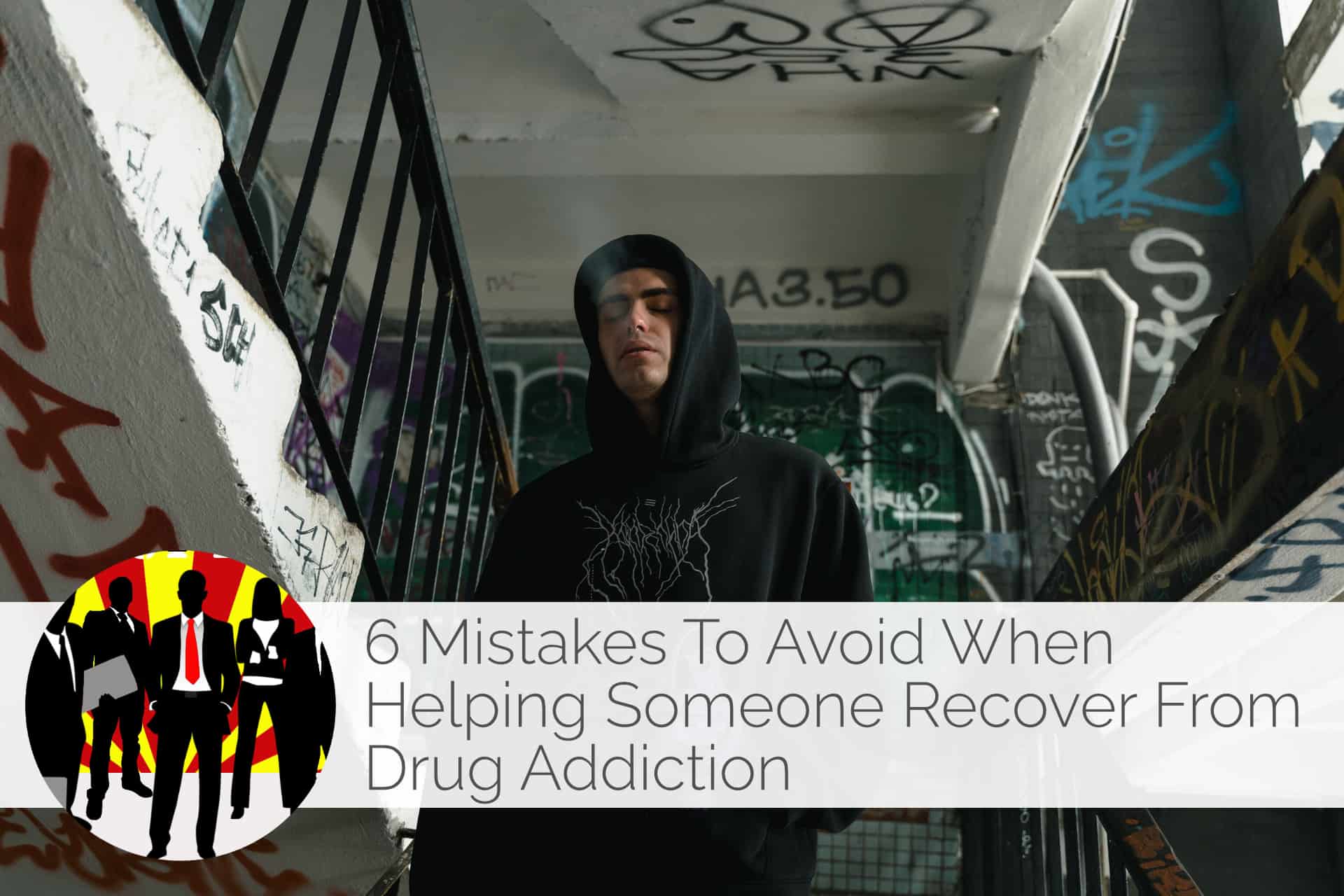A. Mistakes to Avoid When Helping Someone Recover from Drug Addiction
Known clinically as substance use disorder, drug addiction or drug abuse is defined as the “habitual taking of addictive substances.” Addictive substances can include marijuana, opioids, and hallucinogens. Not many people may be aware of it, but substance use disorder is considered a disease.
According to the 2019 World Drug Report, 35 million people suffer from drug use disorders worldwide but only 1 in 7 receive treatment. Drug abuse should not be taken lightly as it can result in illnesses, disabilities, deaths, and drugged driving. Drugged driving penalties can include fines, community service, and jail time.
B. Drug Addiction Recovery: Common Mistakes to Avoid
Recovery from drug addiction can be challenging for most people. After all, you have to make lifestyle changes, learn new coping skills, and implement significant changes in just a short time. Understandably, you may commit mistakes early on.
Below are some of the most prevalent mistakes you should avoid, so you don’t sabotage your recovery efforts:
Mistake #01: Thinking you can do it on your own.
For many people, acknowledging they have a drug problem is hard enough. Unfortunately, many find asking for help to be just as hard. If you are one of the many who find asking for help difficult, you will be tempted to deal with the drug addiction on your own.
However, dealing with the addiction on your own is never a good idea. You can benefit from social support like 12-step programs or other mutual-aid meetings. Additionally, the guidance, support, and intervention of a certified therapist or an addiction treatment program can also make a world of difference.
Mistake #02: Not treating possible health issues
Most people who get help for substance use issues assume going to a 12-step meeting would suffice. While the step can benefit you immensely, it is also crucial that you treat any mental problems you have, if any.
Many individuals with substance use disorders also have underlying mental health issues such as depression, anxiety, PTSD, and many others. If you work on getting sober without addressing your mental health issues, your road to recovery can become even bumpier.
Mistake #03: Hanging out with the same group of people
While unfortunate to note, people are more vulnerable to peer pressure than they think. Even if the group of friends you used to do drugs with won’t pressure you to do drugs with them, being in the same environment and hanging out with the same people might trigger your cravings and increase your potential for relapse.
It is normal to struggle with loneliness in the early stages of your recovery, which is why some people hang out with the same people they are not supposed to hang out with. Focus on creating a sober network as soon as you can. Attending 12-step meetings would be an excellent place to start.
Mistake #04: Assuming recovery ends with treatment
Most people have this assumption that after having their addiction problems fixed, they won’t have anything to worry about after. However, addiction is a chronic condition, and you can relapse anytime. On average, you would need to wait for at least a year before your relapse risk can fall to 50 percent.
Work on making your transition to normal life as seamless as possible. For instance, once done with your inpatient treatment, consider settling in a sober living environment. Full recovery is only possible if you also create lifestyle changes and change your mindset and approach to life.
Mistake #05: Consuming alcoholic drinks
Those who are recovering from alcohol use disorder avoid alcohol. However, people recovering from drug abuse have this common misconception that consuming alcohol is harmless. Many people do not know that alcohol can be a powerful trigger since many use alcohol and drugs together.
However, alcohol will not only impair your self-control and judgment. Alcohol can also make you more vulnerable to relapse. That said, if you are still in the process of recovering from a drug use disorder, you must stay away from alcohol as well.
Mistake #06: Comparing your progress to that of others
Comparing your progress to others can do more harm than good. Keep in mind that most comparisons are not accurate. It is important to realize that everyone has a unique experience when recovering from substance abuse.
It is also crucial to remember that recovery is a cooperative effort. You can benefit more if you support and get support from others rather than competing with them. When you don’t compare your progress with others, it also becomes easier for you to celebrate wins, however small.
C. Conclusion
Recovery from addiction is no easy feat. However, knowing the mistakes to avoid can help ensure your road to recovery is fast and straightforward.
D. The Arizona DUI Team Can Help
It’s important to note that every case is unique. If you’re facing a criminal charge due to addiction, it’s imperative that you consult a top criminal defense attorney. If you’re looking for an attorney in Arizona, please give us a call at 602-845-8590. The Arizona DUI Team will help you get the best possible outcome for your particular case.











